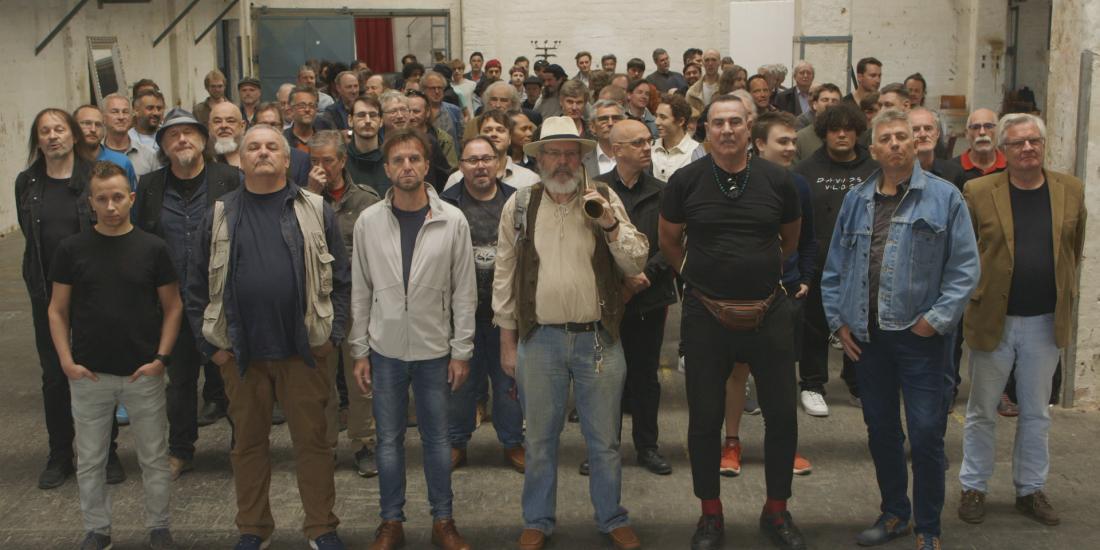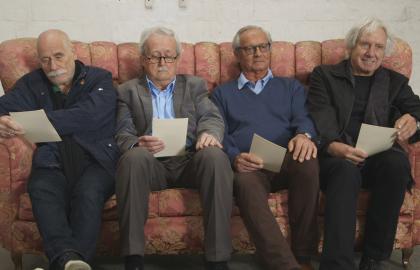For over a hundred years, the novel Josefine Mutzenbacher or The Story of a Viennese Whore has been controversial for its lewd depiction of child and female sexuality. Published anonymously in 1906, it has been attributed to Austro-Hungarian writer Felix Salten. And yet this pornographic tale is light years away from the later novel for which Salten will always be remembered: Bambi, the story of a life in the forest, immortalised by Walt Disney.
A major social question
What we are confronted with in Mutzenbacher is much more than a litany of a young prostitute’s sexual recollections, which above all bear witness to the abasement and objectification of women’s bodies in a society dominated by the omnipotence of men. How can we address this subjection today? This is the central issue that director Ruth Beckermann seeks to highlight through the ambiguous fascination exerted on men by the book’s sexual potency. For paradoxically, it is men who are at the heart of the Austrian director’s film.
Mutzenbacher turns the spotlight on the hundred or so men invited, each in turn, to read out an extract from the book, and to express the impressions, emotions and times in their lives that the passage they are reading evoke. Yet how do you talk about something as intimate as sexuality in front of a camera, knowing that it will turn your private experience into a public statement? How can we embrace male desire in the full daylight when MeToo and the freeing of women’s voices have exposed its excesses, finally forcing society to confront the abuse, the violence and the unbearable exploitation that undermine the dignity of so many women? In short, how can a man embrace his sexuality and desire in a way that remains healthy and respectful? Is this even credible in the current context? These are the major questions that Ruth Beckermann’s documentary tackles with such intelligence.
A constantly engaged director
Beckermann undoubtedly has the gift of scratching beneath the surface of anecdotal events to render the depth and complexity of human experience. Born in Vienna in 1952 to Jewish parents who survived the Holocaust, she studied journalism and art history in Vienna and Tel Aviv, as well as photography in New York. Her first documentaries already bear her mark, such as the powerful Wien Retour (Return to Vienna), made in 1983 with Josef Aichholzer, which, through the portrait of the Austrian Jewish communist and historian Franz West, reconstructs the life of the Jewish community, the history of the workers’ movement and the rise of fascism in Austria between the wars. Die papierene Brücke (The Paper Bridge) addresses a similar theme, tracing the plight of Central European Jews through the history of an era and a region. Beckermann has the ability to gather recollections, drawing them out to depict a social and historical reality. She also has an artistic sensitivity with an unyielding humanism, ever-stronger over time, as in her poignant Die Geträumten (The Dreamed Ones). Hailed in particular by the SCAM/Cinéma du Réel International Prize in 2016, the film narrates the love story between poets Ingeborg Bachmann and Paul Celan, as seen through their correspondence. And then there is Waldheims Waltzer (The Waldheim Waltz), a vitriolic portrait of former UN Secretary General Kurt Waldheim, who was elected President of Austria in 1986 despite the discovery of his Nazi past – a documentary that confronts Austria’s official memory with one of the darkest pages of its history and which won the Glashütte prize for best documentary at the 2018 Berlinale.
It would of course be tempting to see Mutzenbacher as a less political subject. But this would be to misunderstand both the social and societal significance of Ruth Beckermann’s documentary, as well as the importance of its subject matter, which, behind its apparent simplicity, poses the fundamental question of sexuality and the roles it assigns to us in a society that is finally beginning to embrace an egalitarian understanding of sex and gender, even if we still have a long way to go to shake off our atavisms.
Mutzenbacher by Ruth Beckermann, 21 December at 7pm, screening and question-and-answer session with the director.

